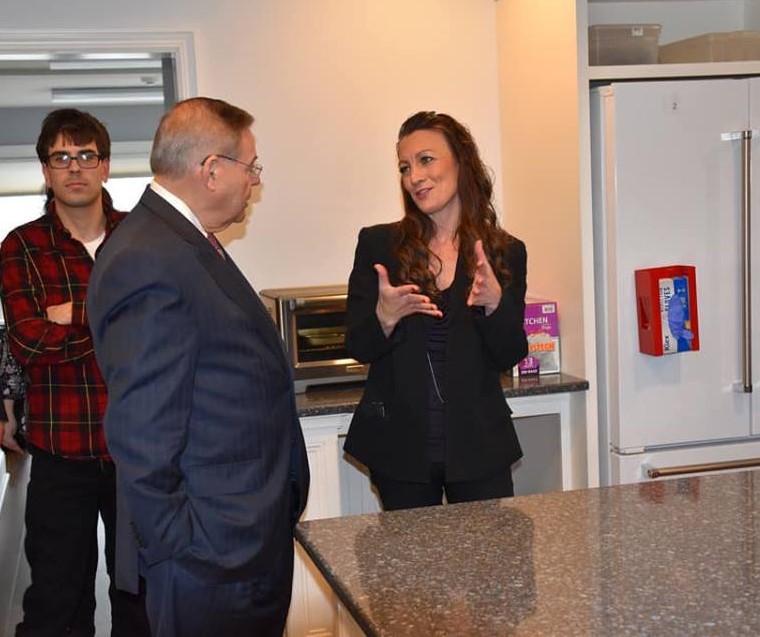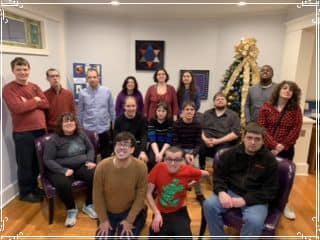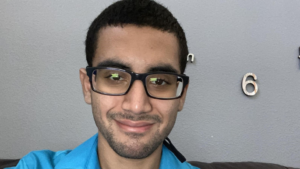This guest post is by Carrie Hennessy who has been working with individuals with ASD and their families for over 20 years, it all started in undergrad while she was getting here degree in Psychology when she was a home ABA therapist for a little boy with autism. She went on to get her special ed teaching cert, a Masters in ABA, and also is now a BCBA (Board Certified Behavior Analyst). She has been the clinical director at Quest Autism Programs since they opened in 2005. She also does consultation to families, school districts, programs, and employers on transition, vocational training and employment for individuals with ASD, behavior supports, etc.
Hi Carrie – can you tell us a bit about how Quest Autism Foundation got its start?

The Quest Autism Foundation began in 2000 by a group of amazing, dedicated parents who had a vision to open a quality day program for their children who were aging out of school and there were limited options for post-graduation services in this area at the time. They were committed to continuing their education while giving them vocational opportunities and integrating them into the community. In July 2005, the Quest Autism Adult Day Program opened its doors with just two participants, and we have now been open 13 years with 18 participants currently in the program. I am most proud of the fact that all of our participants have at least 1 paid job!
What made you want to get involved?
One of the parents who was starting Quest contacted me (I was working at the University of Rochester’s STAART Center at the time) about helping start the program as I had been her daughter’s teacher and worked with the oldest students at the school they were graduating from so I had a history and strong bond with some of them, and I had experience supporting them at jobs in the community. I also knew the need for creating and implementing a quality day program was great so I couldn’t pass the opportunity up! I’m proud of what Quest has accomplished so far and I hope we can continue to grow and help more adults like those in our program.
If you could only pick one thing that high schools should be doing to help students with autism transition to adulthood what would that be?
It is very hard to pick just one but I think that preparing high school students with ASD as early as possible is critical- do not wait until the year they are ready to graduate. Transition planning and discussing options are so important, the earlier the better, and get the families involved. Educating parents of these students about the transition process and their options as well. This can be such an overwhelming time- like falling off the cliff, as so many parents compare moving into adult services, post-graduation to. Providing resources and support can alleviate some of the anxiety so they can make informed decisions about their children’s future.
What’s one misconception about autism today that you would like to see debunked?
That people with autism cannot hold a job and be just as productive and hardworking as their neurotypical peers. I see that the culture in the workplace is definitely changing to be more inclusive and accepting of people with all different disabilities, however we have a long way to go. Individuals with ASD have so many unique skills and strengths that they can contribute at a job, it’s all about the right match and making sure they have the necessary supports in place to be successful.
Have any favorite events you’ve taken part in with the Foundation?
We have an annual Harvest Ball fundraiser in the fall that is really wonderful where we like to honor our employers and celebrate our accomplishments with the families and supporters of QAP. We also started participating in the annual Bike to Beach event in NYC which is a lot of fun! The brother of one of our participants started doing the ride a few years ago and it’s been a huge success.
Have there been any self-advocates that have inspired your team and/or the adults that you have worked with over the years?
Well, you are certainly an amazing inspiration and role model for this community! I also think Temple Grandin and Amy Gravino are incredible and have touched this population with their insight and advocacy work for adults with ASD.
Is there an area currently facing the adult population (i.e employment, postsecondary) that you think is being underserved more than others today in our autism community?

I do think that there needs to be more education/awareness, research and resources available for the adult population with ASD. Just in this state alone, there is such a need for adult services and quality day programs including transition and employment readiness services. Over the next decade, there will be over 500,000 high schoolers with autism graduating and entering adult services so the need is staggering. Most recently, this was highlighted when we met for the press conference with Sen Menendez at Quest to support the re-authorization of the Autism CARES Act.
Anything else you’d like to share with our readers?
Thank you to everyone who has supported QAP over the years and to wonderful, compassionate advocates like you and others who bring attention to the needs for adults with ASD.
Editor’s note: Employment is a huge topic facing our loved ones who are adults. I applaud Carrie for highlighting this in her work and the continued work of groups such as Quest Autism Foundation! – Kerry Magro














